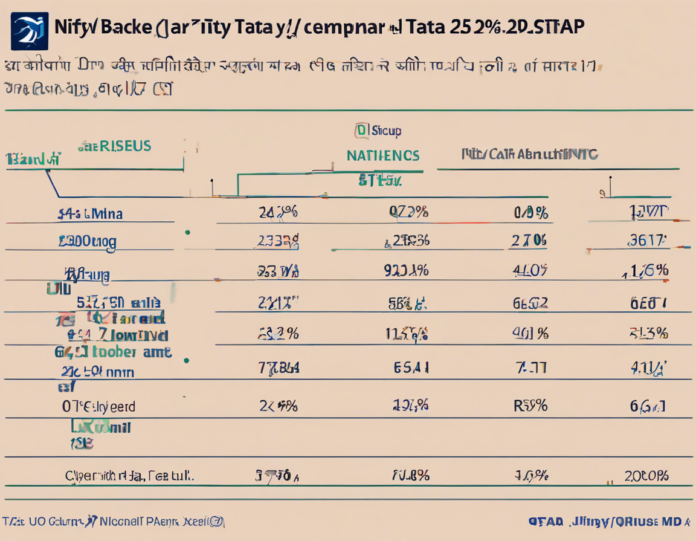Introduction:
The Tata Group is a well-known conglomerate in India with a rich history spanning over a century. One of the interesting aspects of the Tata Group is the “25% Market Cap Rule.” This rule stipulates that any listed company in which Tata Sons, the holding company of the Tata Group, holds a minimum of 25% market capitalization must remain listed on the stock exchange. In this article, we will delve into the significance of this rule, its implications, and its impact on the Tata Group and the wider Indian business landscape.
Understanding the 25% Market Cap Rule:
The 25% Market Cap Rule serves as a safeguard to ensure that Tata Group companies maintain a certain level of market capitalization to continue being listed on the stock exchanges. When a company’s market capitalization falls below this threshold, it raises concerns about the company’s financial health and stability. By imposing this rule, Tata Sons aims to uphold transparency, accountability, and investor confidence in its group companies.
Implications of the Rule:
1. Market Discipline: The 25% Market Cap Rule instills market discipline by compelling Tata Group companies to maintain a strong market capitalization. This incentivizes them to focus on sustainable growth strategies and value creation for shareholders.
2. Investor Confidence: By ensuring that Tata Group companies meet the 25% market cap threshold, the rule enhances investor confidence in the group’s businesses. It signals to investors that the companies are financially sound and well-managed.
3. Corporate Governance: The rule underscores the importance of sound corporate governance practices within Tata Group companies. It promotes transparency, accountability, and adherence to regulatory standards.
4. Risk Mitigation: Maintaining a minimum market capitalization helps mitigate the risk of delisting for Tata Group companies. It provides a buffer against market volatility and adverse business conditions.
5. Strategic Decision-Making: The rule influences strategic decision-making within Tata Group companies. It encourages them to focus on long-term value creation and sustainable growth trajectories.
Impact on Tata Group Companies:
The 25% Market Cap Rule has a significant impact on Tata Group companies, shaping their financial management practices, strategic priorities, and market positioning. Companies within the group must consistently strive to meet the market cap requirement to avoid potential repercussions such as regulatory scrutiny or investor skepticism. This emphasis on market capitalization underscores the Tata Group’s commitment to maintaining robust financial fundamentals and sustainable business operations across its diverse portfolio of companies.
Challenges and Opportunities:
While the 25% Market Cap Rule presents challenges for Tata Group companies in terms of meeting the market capitalization threshold, it also offers opportunities for them to strengthen their competitive positions, enhance shareholder value, and demonstrate resilience in dynamic market environments. By aligning their business strategies with the imperatives of the rule, Tata Group companies can leverage their diverse capabilities and market presence to drive sustainable growth and contribute to India’s economic development.
FAQs (Frequently Asked Questions):
1. What happens if a Tata Group company fails to meet the 25% market cap requirement?
If a Tata Group company falls below the 25% market cap threshold, it faces the risk of regulatory action, potential delisting from the stock exchange, and erosion of investor confidence.
-
How often is the market capitalization of Tata Group companies assessed to ensure compliance with the rule?
Market capitalization of Tata Group companies is typically monitored regularly, with periodic assessments to evaluate compliance with the 25% market cap rule. -
Does the 25% Market Cap Rule apply to all Tata Group companies, regardless of their sector or size?
Yes, the 25% Market Cap Rule applies uniformly to all listed Tata Group companies, irrespective of their sectoral focus or market capitalization. -
What measures can Tata Group companies take to enhance their market capitalization and meet the 25% threshold?
Tata Group companies can enhance their market capitalization through strategic growth initiatives, operational efficiencies, financial prudence, investor relations, and effective communication of their business performance. -
How does the 25% Market Cap Rule reflect Tata Group’s commitment to corporate governance and stakeholder value creation?
The 25% Market Cap Rule underscores Tata Group’s commitment to robust corporate governance, financial transparency, and sustainable value creation for its stakeholders, including shareholders, employees, customers, and the broader community.
In conclusion, the 25% Market Cap Rule exemplifies Tata Group’s proactive approach to financial stewardship, market regulation, and long-term sustainability. By upholding this rule, the Tata Group reinforces its reputation as a responsible corporate entity with a focus on value creation, integrity, and resilience in the ever-evolving business landscape.
